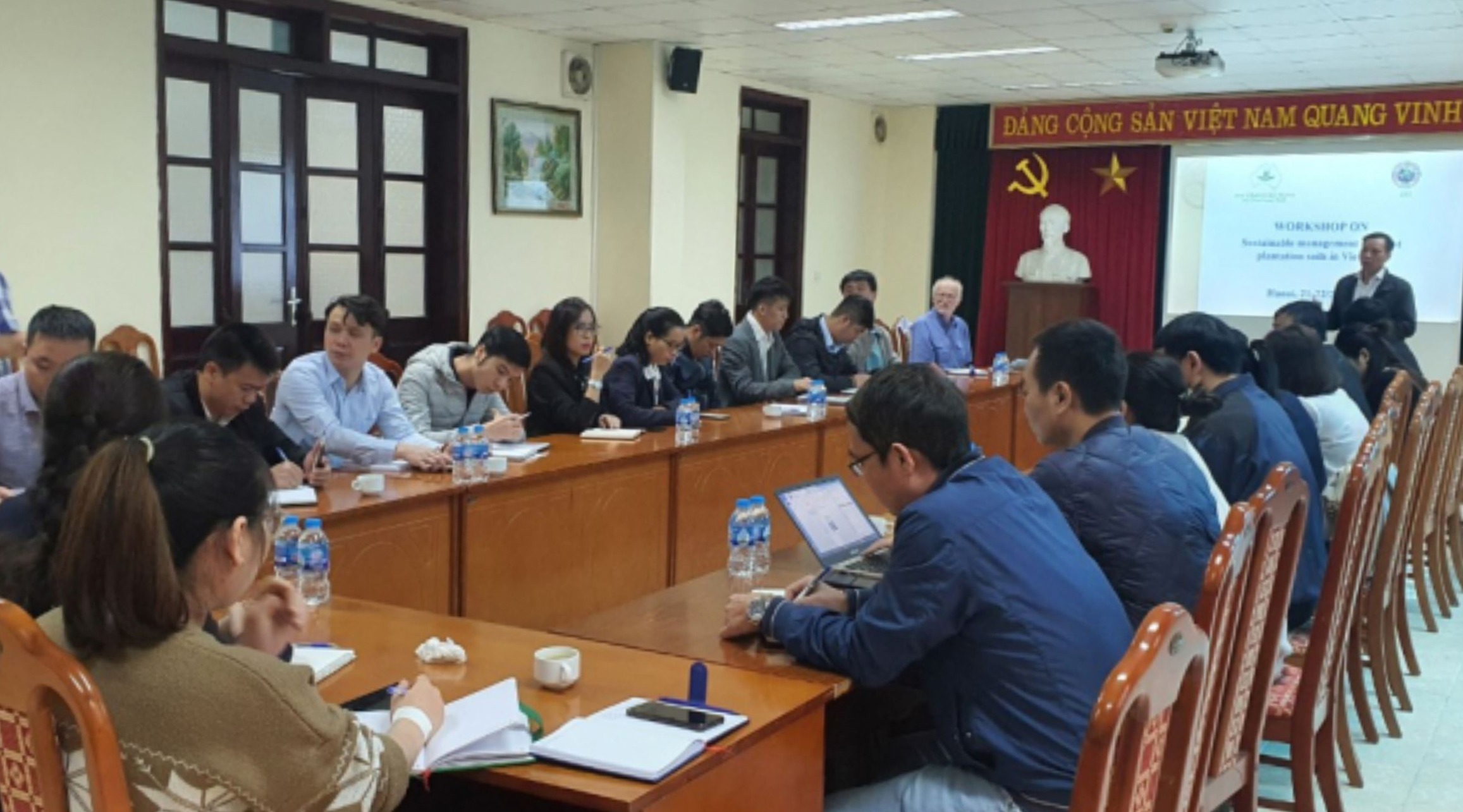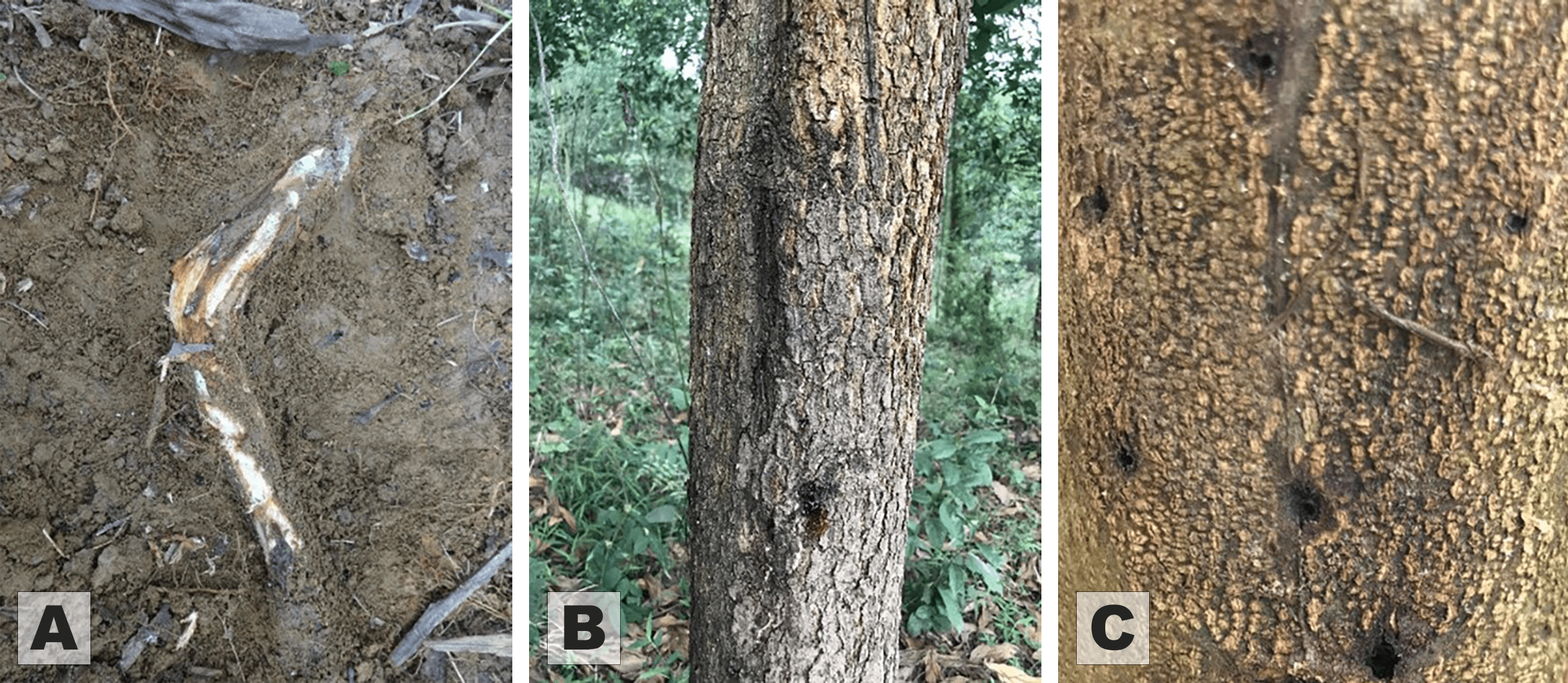

Capacity building for young scientists and training farmers in Vietnam
May 30, 2023

The Crawford Fund’s Tasmanian Committee recently supported a training visit to Hanoi and two adjacent provinces in Vietnam led by mentor Dr Chris Beadle.
“For the last 25 years, ACIAR projects managed through CSIRO and the University of Tasmania (UTas), some in cooperation with other Australian research institutions, have led to the development of strong links between Australian and Vietnamese researchers in the fields of agriculture and forestry. While the core projects have been based in Vietnam, postgraduate scholarships funded through ACIAR (John Allwright Fellowships) and earlier AusAID have led to the training of several young Vietnamese scientists to MSc and PhD level at UTas. Several are now pursuing successful careers in their home institutions,” said Dr Beadle.
“This Crawford Fund training is allowing these relationships to continue to thrive by facilitating continued Australian input into the further development of young scientists, and in my case smallholder farmers growing trees as crops to generate income in areas of Vietnam that are in large occupied by the rural poor,” he said.
The visit encompassed several activities including:
- A soils workshop and field day
- Forest diseases discussion
- Paper-writing
- Project development
Twenty-seven attendees, mainly young scientists with a range of backgrounds, were taught about the potential soil-based issues that lie behind declining wood yields in plantation forestry as part of the Sustaining the productive potential of forest soils workshop.
“Working with Dr Dang Thinh Trieu who is about to undertake a project in this area – already approved and funded by the Vietnam Ministry of Science and Technology – this workshop was prompted by a concern that the productive potential of Vietnam’s plantations was declining,” said Dr Beadle.
The field day component was a training exercise aimed at developing a strategy for soil sampling that captured potential changes in chemical, physical and biological changes in soil properties with slope. The technical staff were also trained in the taking of soil samples which is a new area of research for the research team involved.
Dr Beadle continued his ongoing forest diseases discussion with two Vietnamese scientists providing advice on how to best manage their measurement programs and analyse data so that the research can be published in international journals.
As a core part of Dr Beadle’s mentoring role, assisting in-country scientists with paper-writing was also a key focus of his visit. Dr Beadle was asked to support the continued development of two manuscripts, ‘Estimating the Carbon Storage Capacity of Rubber and Indigenous Tree-species plantations’ by Dr Nguyen Van Thinh, and ‘Economic Analysis of Enrichment Planting’ by Dr Phan Minh Quang.
Dr Beadle was asked to provide input into research projects that have been approved and funded since his last visit in 2019, including identifying the best site for the ACIAR project Managing risk in S-E Asian Forest Biosecurity (ACIAR FST/2018/179) which commenced in July 2022, and the Ceratocystis trial in Tan Lac District, Hoa Binh Province (ACIAR FST/2014/068) on the current thinking regarding Ceratocystis disease transmission.

Vietnamese farmers have a long history of burning harvest residue as part of site preparation for the next crop. In an experiment established in July 2019 that formed part of an ACIAR Project led by the University of Tasmania’s Dr Morag Glen and supported by Crawford Fund Mentor Dr Chris Beadle, Drs Trang and Chi, two forest pathologists at the Vietnamese Academy of Forest Sciences started examining the potential of this burning to reduce disease risk.
“Two years after burning, tree death was greater in the control (23 trees) than in the burnt (14 trees) plots. As the burning experiment is surrounded by other areas of disease-affected acacia-based plantation forest, it is not possible to control this source of inoculum which enters the tree through wounds on the stem rather than around the root collar. Consequently, controlling this disease continues to challenge forest pathologists,” concluded Dr Beadle.




 0
0